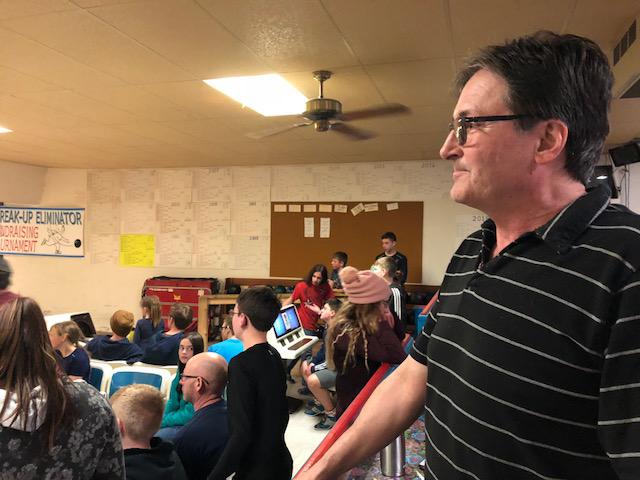
The Kenai Peninsula’s last bowling alley has closed down. Homer bowlers had their final chance to throw 10 frames Saturday at Kachemak Bowl before the building was turned over to Regent Life Church. That’s left several bowlers in Homer unsure about what they’ll do without the sport.
Richard Everett was playing on one of the few lanes at Kachemak Bowl Thursday that he said works well. He said the other lanes have some quirks.
“Those two lanes, you have to manually score it,”Lane number six, when you get a strike, you have to hit the reset button so the next guy can bowl—that doesn’t do it automatically,” Everett said. “But it’s all part of it. It’s the uniqueness of the lanes.”
Everett has been bowling here for 25 years.
“We’re going to miss it deeply,” Everett said. “I don’t know what I’m going to do with all my bowling balls now. I made a lot of good friends.”
Everett competes on the local Special Olympics Unified Team. The team is representing Alaska this summer at the Special Olympics in Seattle. Now that there is no bowling alley left on the peninsula, Everett and his teammates will have to drive the roughly 220 miles to Anchorage to practice.
Teammate Robin Daugherty says she can’t afford not to.
“So every Saturday, from now until the end of June, I’m driving to Anchorage, bowling and driving back. Because I need to bowl with that ball to be good enough to compete in Seattle,” Daugherty said.
Reactions to the alley closing down ranged from disappointment to heartbreak, but most said they saw this coming. Mark Cooper owns Kachemak Bowl and is the only employee. He leases the space from his mom.
“Well the building is still owned by my mom, and she put it up for sale two years ago,” Cooper said.
Cooper said Kachemak Bowl started in 1959 on Bunnell Street. His family bought it in the 1970s and built the current alley about a decade later.
The family was hoping to find someone who would continue operating the bowling alley, but Cooper said that’s a tough sell.
“Bowling has declined and that’s a nationwide decline,” Cooper explained. “We felt it here possibly a little later than the rest of the nation. It’s become more of a recreational event instead of the league base that used to drive it.”
Cooper said he’ll miss the variety of people who have walked through the doors over the years, and he adds that he’s not quite sure what he will do next.
“It’s all I’ve done for the last 30 some years,” Cooper said. “So, pretty much everybody I know is my customer base.”
The Regent Life Church officially bought the building Monday and takes over the building Tuesday. It plans to make the bowling alley its new location.




